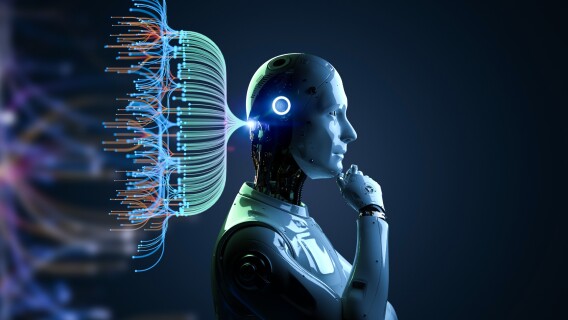Every industry will change from the developments in artificial intelligence. Those two words sound ominous – maybe rightfully so, maybe not. However, recent progress over the past several years means that AI is no longer a buzzword. Instead, these advancements in machine learning will help AI companies reshape industry faster than most realize.
Members of the AI/ML community refer to this practice of modern data science as deep learning.
Deep learning uses large datasets to train neural networks – computer models optimize for a set of outcomes using reward functions. In this iterative process, there are inputs and there are outputs.
Fascination with artificial intelligence is not new – it has been around since the 1950s and perhaps even earlier. The rise in computational power from improvements in semiconductor technology using Moore’s Law has helped to unlock the revolution in machine learning. Computer scientists can now leverage the increased processing power to churn through larger amounts of data – thus enabling the models to improve more quickly and learn.
[text_ad]
Large Language Models (LLM), like GPT-3 from Open AI use vast amounts of text available on the internet to train the neural nets to predict what words might come next in a sentence and generate the text. In doing so, the model “learns” from human language structures to produce advanced sentences.
Open AI now offers unrestricted access to GPT-3 via API and many companies are benefiting from access to the technology.
Rise of the Transformer
Time to go deeper… Recent advancements in AI stem from the development of a general-purpose computer known as a transformer. Transformers process information all at once instead of, say, processing one word at a time for sentence structure.
Key Benefits:
- Trainable, very efficient
- “Attention is all you need” paper (Attention is All You Need)
- Nodes, store vectors, communicate and broadcast “hey I’m looking for this,” counterpart says hey “I have key-value pairs!”
- Message passing scheme where nodes update each other is extremely useful
- Very expressive function in the forward pass of data
Many computers are not customizable whereas transformers are. Transformers also run very efficiently on hardware, as the hardware prefers parallel processing. A transformer is built on a series of blocks, attention, and perception. They come back to the same pathway as a source of truth. Gradients flow uninterrupted, addition distributes to all the residual connections.
People are retaining the architecture but scaling to larger and larger datasets.
AI Companies Will Change M&A and Investments
Companies are bought and sold. That is the nature of business. Considerable resources are invested in these processes. After the close of the transaction, two companies, regardless of size, are expected to merge to unlock synergies. Unlocking company growth following the close of a transaction rests upon the ability to utilize data.
ML/AI is extremely underutilized today in M&A and private investments and I expect that to change very quickly.
Companies in traditional sectors need access to advanced technologies to improve and scale their business. However, they lack the resources to build these teams in-house (Ford recently shut down Argo AI).
A whole new wave of startups will continue to arise to better unlock business data (See: ScaleAI, DeepMind, OpenAI). These AI companies will sit on top of the modern data stack (cloud data warehouse) and will help comprise the S&P 500 of the future.
[author_ad]

